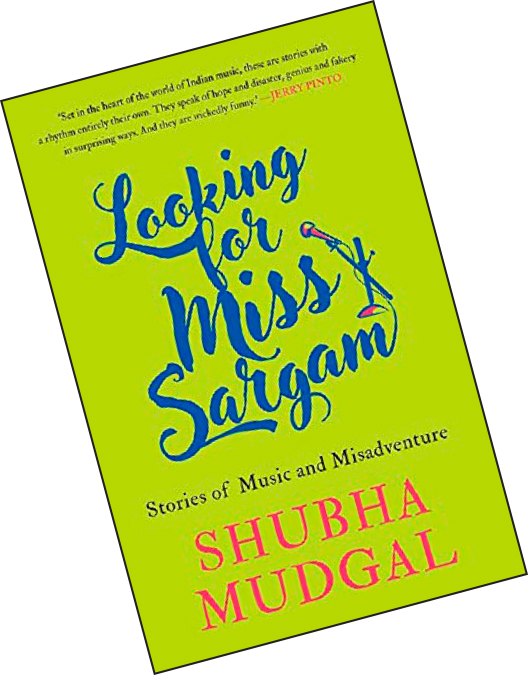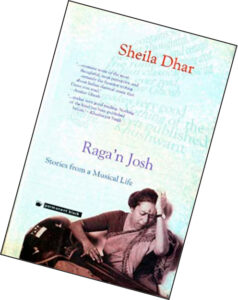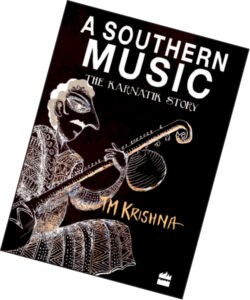

All of us have stories to share from our experiences and we recount them, sometimes deadpan, sometimes blended with mirch masala and a crush of kasuri methi for the general listening pleasure. Among my mother’s all-time favourite stories concerned the golden-voiced, maverick yet endearing musician M Balamuralikrishna.
Amma’s story goes like this: Many years ago, the Music Academy in Madras (now Chennai), the frontrunning platform for all performing artists, had blacklisted Balamurali, and would not invite him to perform on its stage. The reasons are unknown to me. However, Balamurali was not only a creative genius, he was fiercely dogged and he somehow, finally, managed to get a leg in. This is when Amma’s giggling fit would begin. She and my aunt were in the upper galleries that evening when Balamurali took the stage and the way she tells it, he didn’t get off until he had run through practically his entire songbook, turning one page after another without a break. It was, my mother recalls, a performance that showcased some familiar songs, but mostly original compositions set in ragas of his own creation. You could see the organisers getting agitated, my mother would recall giggling away ‘They tried so hard to stop him,’ Amma would say, ‘but uh-huh, he didn’t even look in their direction, he just went on and on. They didn’t know what to do!’
Music, like poetry, resides with and around us everywhere, in every moment, but the world has chosen June 21 to celebrate it annually, at least since around 1981. That’s why my thoughts drifted to music, musicians and, as you rightly guess, books about music and musicians. Prominently displayed in my bookshelf is Raga’n Josh: Stories from a Musical Life by Sheila Dhar. It’s a gift from a friend: a collection of incisive, droll and detailed writings about many things, especially music.
The music we have today is as beautiful as it is only because of the influences that came in when the Mughals came in. … You have Hindu singers and Muslim singers performing together in a way that is unimaginable.
Sheila Dhar was passionate about Hindustani music and was no mean singer herself. She worked with the Publications Division and wrote a delightful book for children (among others) called This India. She was associated with the Sangeet Natak Akademi and the Indian Council for Cultural Relations. She was a sharp writer and being married to the economist P N Dhar provided many opportunities to rub shoulders with prominent and/or influential people. Her musical journey brought her close to personalities such as Begum Akhtar, Fayyaz Ahmad Khan, Pran Nath, Siddheswari Devi and Kesarbai Kerkar. Add to all this a keen sense of observation laced with a streak of mischief, not to mention an amazing way with words. To quote from the back cover of Raga’n Josh: ‘Incisive intelligence, comic effervescence, self-deprecating humour, and a fascinating ability to manipulate the English language for Indian contexts…’ The book has and is all this. The best part is that you don’t have to be a music-lover to enjoy it, although it is a bonus if you do.

As you chuckle your way through the pieces, each a separate chapter, you also get glimpses into the lifestyle of a well-positioned and extended Mayur Kayasth family whose dining table seated over 50 members in descending order of importance at any given meal. That is a story in itself. The collection also has memorable ruminations on many subjects, but the music plays on.
For instance, I opened the book at random and found this little section talking about how musicians are influenced by those whom they admire or love, even if they belong to other gharanas or schools: ‘The other day a brilliant young vocalist, recording her first CD, honoured the master she admired most simply by singing in his special manner. Everyone present recognised the tribute without a word having been said. “I just felt like writing a love letter today,” she remarked later.’ Then, Sheila Dhar goes on to mention how every time Mallikarjun Mansur sang Raag Jaunpuri, he would ‘interrupt himself to tell his listeners that he was singing the antara in the characteristic manner of Manji Khan, a guru whom he adored’. A little later, he would mention the name of Rahmat Khan from whom Manji Khan had got it. ‘In this tradition,’ Sheila Dhar writes, ‘no great musician lives alone on the creative mountaintop… In a sense, all outstanding achievement in this field is collective, and there is a sense of participation by a warm, closely connected joint family which lives in the mind of the musician and provides him with all the earlier recordings he might wish to refer to.’
In a sense, it is this ‘collective’ that Carnatic musician T M Krishna is perhaps inspired by in his thoughtful, often provocative writings and in his music itself. Whether you are a musician or not, aficionado or not, his A Southern Music is a must-read for the insights it provides and the thinking it triggers about history, tradition, practice and performance. Striking a different note is Namita Devidayal’s The Music Room. Although it’s a memoir of the author’s musical journey, it has a fiction-like quality. It begins with her first lessons as a child to study music from Dhondutai, the last disciple of Kesarbai Kerkar and Alladiya Khan. As the reader journeys with Namita Devidayal, an intricately interlinked world unravels in which music dominates. In an interaction at the Asia Society headquarters in New York some ten years back, the author told her audience: ‘The music we have today is as beautiful as it is only because of the influences that came in when the Mughals came in. … You have Hindu singers and Muslim singers performing together in a way that is unimaginable. I think we need to cherish this.’

That’s what, perhaps, inspired singer Shubha Mudgal to write Looking for Miss Sargam: Stories of Music and Misadventure. The fact that she cherishes her musical heritage as well as all that it has given her as a practising musician. Anyone who knows music knows Shubha Mudgal and her powerhouse of a voice. That same voice speaks to readers with affection, irony, compassion and accuracy in this, her debut offering of fiction. Yet, again, as anyone who is familiar with the music world would know, truth lies at the heart of each story, whether it is about a singer dying to perform abroad and being hosted by locals in the US, or raising funds for a music competition. India-Pakistan music concerts for peace? There hangs a story. Work not being acknowledged, or worse, being appropriated? Looking for patronage? Or desperate for public honour? Shubha Mudgal writes with a light touch but the underlying tragedy is unmistakable.
So, dear readers, there’s plenty to look forward to and, given the present environment, time enough to read and ruminate. When you go looking for these books, I promise you will stumble upon an even greater haul. Miss Sargam could lead the way, to both books and music. Don’t forget to listen to music.
The columnist is a children’s writer and senior journalist.





